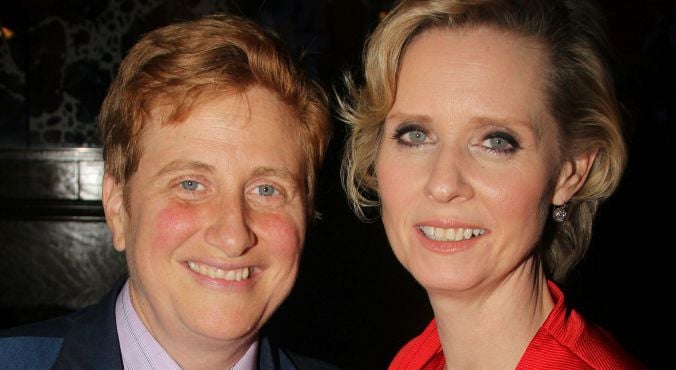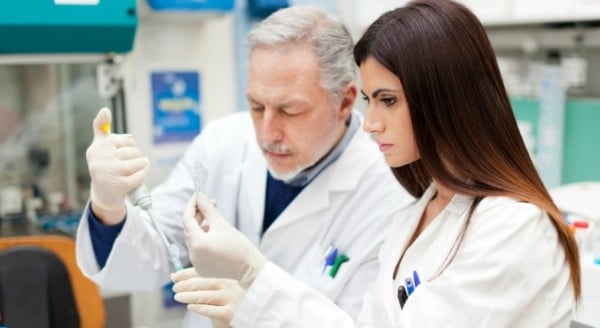
Image via Getty.
Thanks to breakthrough research, same-sex couples could be able to have biological children in around two years.
According to a study published earlier this year in the journal Cell, researchers from Cambridge University and Israel’s Weizmann Institute of Science showed it was possible to make human egg and sperm cells using the skin from two adults of the same sex.
Using skin from five adults, the team were able to create stem cells that make sperm and eggs in the body. 10 different donor sources were used and researchers were successful in creating new reproductive-cell lines from all of them.
The engineered stem cells were then compared to natural human stem cells from aborted human fetuses to confirm they had identical characteristics. (Post continues after gallery.)
Celebrity same-sex couples.
The stem cell research breakthrough not only opens the door for same-sex couples to have their own babies, but also presents a potential option for other couples who are infertile or struggling with fertility.
Previous studies have been successful in creating live baby mice engineered eggs and sperm but the study marks the first successful case in creating a human version.
“We have succeeded in the first and most important step of this process, which is to show we can make these very early human stem cells in a dish,” project leader and professor of physiology and reproduction at Cambridge, Azim Surani, told the Sunday Times.
Surani was involved in the research that led to the birth of Louise Brown, the world’s first test tube baby, in 1978.





























































































